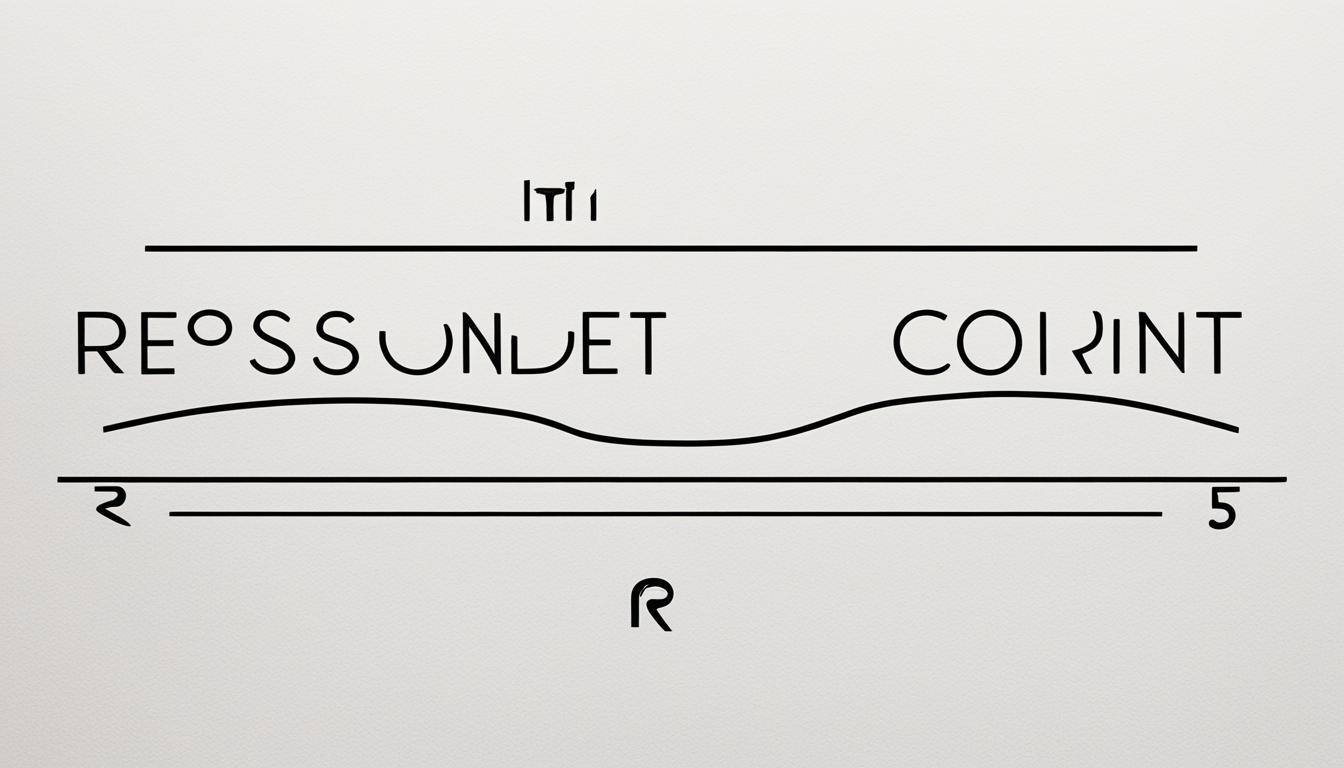Understanding the Legal Definition of Respondent in US Law Dictionary

When it comes to navigating the intricacies of the US legal framework, it is crucial to have a clear understanding of the terminology used. One such term is “respondent,” which holds significant importance in court proceedings and litigation contexts.
In this article, we will delve into the meaning of “respondent” in law and explore its relevance within the US legal system. Whether you are involved in a divorce case or facing business litigation, understanding the role of a respondent is essential.
Throughout the following sections, we will provide a comprehensive definition of a respondent and its significance in various legal contexts. We will also highlight the relationship between a petitioner and a respondent, shedding light on their respective roles in legal proceedings and appeals.
By gaining a comprehensive understanding of the meaning and implications of a respondent in law, you will be better equipped to navigate your own legal journey. So, let’s dive into the exploration of this crucial concept.
What is a Respondent in Law?
In the world of law, the term “respondent” holds great significance. Defined as a party in a legal case, the respondent plays a crucial role in the proceedings. They are the individual or entity against whom allegations have been made and are required to answer these allegations in a court of law.
When a legal case is brought forward, it typically involves two primary parties: the petitioner and the respondent. The petitioner is the party initiating the legal action, while the respondent is the party being accused or challenged. In this context, the respondent serves as the defender or defendant in the case.
The obligation of the respondent is to respond to the allegations made against them by the petitioner. This response often takes the form of an answer, where the respondent addresses the specific claims and provides their side of the story. It is crucial for the respondent to present a strong defense and utilize legal arguments to support their case.
In order to navigate the intricacies of the legal system effectively, it is essential to have a good understanding of the relevant legal terms. Familiarity with these terms will help respondents comprehend the nature of the allegations against them and respond appropriately.
Now, let’s explore some common legal terms related to respondents:
- Defendant: Another term often used synonymously with respondent, especially in criminal cases.
- Party: Refers to any individual or entity involved in a legal case, including both the petitioner and the respondent.
- Case: The specific legal matter or dispute being addressed in court.
- Answer: The response provided by the respondent to the allegations made against them.
Gaining a comprehensive understanding of these legal terms is crucial for respondents to effectively navigate their case and protect their interests. By being well-informed and prepared, respondents can better advocate for themselves and present a strong defense in legal proceedings.
The Role of a Respondent in Different Legal Contexts
When it comes to the legal system, the role of a respondent can vary depending on the context in which they are involved. It’s important to understand how respondents are implicated in different legal scenarios, whether it’s in family law or business litigation.
Family Law
In family law cases, respondents play a crucial role in legal proceedings, particularly in divorce cases. When one party files for divorce, they become the petitioner, seeking legal action against their spouse, who then becomes the respondent.
As the respondent, it is their responsibility to respond to the allegations made by the petitioner. This typically involves addressing issues related to property division, child custody, spousal support, and other matters determined by the court.
Let’s consider an example to better illustrate the role of a respondent in family law:
- A couple, Jane and John, decide to get a divorce.
- Jane files for divorce and becomes the petitioner.
- John, as the respondent, receives the divorce petition and has the opportunity to respond.
- In his response, John may agree or disagree with the allegations made by Jane and present his own requests and concerns.
- The court will then consider both parties’ positions and make decisions accordingly.
Understanding the role of a respondent in family law cases is crucial for individuals going through a divorce, as it ensures they can fully participate in the legal process and protect their rights and interests.
Business Litigation
Respondents also play a significant role in business litigation. In this context, a respondent can be an individual, a business entity, or even a government agency facing legal action brought forth by another party.
An example of a respondent in business litigation could be a company accused of breaching a contract by a supplier. The supplier would file a lawsuit, making them the plaintiff, and the accused company would become the respondent. The respondent must then respond to the allegations made by the plaintiff and present their defense in court.
By understanding the role of a respondent in business litigation, individuals and companies can effectively navigate the legal process and protect their interests.
Glossary of Terms
Here are some key terms related to respondents in family law and business litigation:
| Term | Definition |
|---|---|
| Divorce Respondent | The spouse who is served with divorce papers and must respond to the allegations made by the petitioner. |
| Business Litigation Respondent | The party being sued in a business dispute, who must respond to the allegations and present a defense. |
| Affidavit of Service | A legal document that proves the respondent has been served with court papers, such as a divorce petition or lawsuit. |
Having a clear understanding of these terms will help individuals involved in legal cases comprehend their rights and responsibilities as respondents.
By examining the role of a respondent in different legal contexts, such as family law and business litigation, it becomes evident that respondents play a significant part in shaping legal outcomes and safeguarding their own interests. Whether it’s responding to divorce allegations or defending against business disputes, understanding the role and responsibilities of a respondent is crucial for anyone involved in legal proceedings.
Understanding the Relationship Between Petitioner and Respondent
When navigating the legal landscape, it is vital to comprehend the intricate relationship between a petitioner and a respondent. Each party plays a distinct role in the appeal process, which holds significant legal implications.
A petitioner refers to the person or party who initiates a legal action by filing a petition. This individual brings forth a claim or seeks a remedy, compelling the court to address their concerns. In contrast, the respondent is the defendant in the case, the person against whom the petition is filed.
During an appeal, the petitioner presents their arguments and evidence to challenge a previous decision or seek a favorable ruling. The respondent then has the opportunity to respond, presenting counter-arguments and supporting evidence to defend their position.
It is crucial to note that not every legal case involves a petitioner and respondent. In some situations, only one party files a petition, making the opposing party solely a respondent. However, understanding the petitioner-respondent relationship is pivotal in comprehending the dynamics of legal proceedings.
Key Features:
- A petitioner initiates a legal action by filing a petition.
- A respondent is the defendant against whom the petition is filed.
- During an appeal, the petitioner challenges a previous decision, and the respondent defends their position.
- Not every case involves both a petitioner and respondent.
To provide further clarity, refer to the following table that summarizes the key distinctions between a petitioner and a respondent:
| Category | Petitioner | Respondent |
|---|---|---|
| Definition | The party initiating a legal action by filing a petition. | The party against whom the petition is filed. |
| Role | Presents arguments and evidence against previous decisions or seeks a favorable ruling. | Responds to the petitioner’s claims, presenting counter-arguments and supporting evidence. |
| Legal Implication | Can influence the outcome of the legal proceedings. | Must defend their position against the petitioner’s assertions. |
As you can see, comprehending the relationship between a petitioner and a respondent is crucial for anyone involved in legal matters. It allows individuals to navigate the legal system effectively and ensure their rights are protected.
Conclusion
In this article, we have explored the legal definition and significance of a respondent in the US legal framework. Understanding the role of a respondent is crucial in navigating court proceedings and litigation contexts successfully.
A respondent is defined as a party in a legal case who is required to answer the allegations made against them. They play a critical role in various legal contexts, including family law and business litigation. In family law cases, such as divorce proceedings, a respondent responds to the petition filed by the petitioner.
By comprehending the relationship between a petitioner and a respondent, individuals can gain insight into their responsibilities and obligations. It is important to note that a respondent has the right to appeal against unfavorable decisions and petitions filed against them.
In conclusion, understanding the meaning of a respondent in law is essential for anyone involved in legal proceedings. By being aware of their role and obligations, individuals can effectively navigate the legal system and protect their rights.








